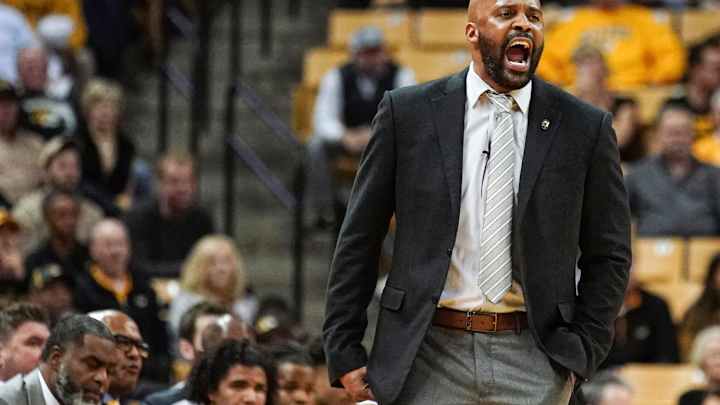Cal Basketball: Ex-Coach Cuonzo Martin Had Eyes Opened by His Time at Berkeley

Cuonzo Martin spent just three years as basketball coach at Cal, but it’s pretty clear a little of Berkeley rubbed off on him.
In an extensive interview this week with Dave Matter of the St. Louis Post-Dispatch, Martin discussed his reaction to nationwide protests over the killing of George Floyd by a Minneapolis police officer.
Martin, who is black, said he feels a mix of emotions.
“You’re exhausted. You’re sitting there like, man, how do you move forward? I say this with respect, but it feels like you’re hopeless,” the Post-Dispatch quoted Martin as saying.
Martin was 62-39 with one NCAA tournament bid in his three seasons at Cal through 2016-17, after which he left for Missouri.
Asked what about his experience at Berkeley resonates now, Martin said, “What Berkeley did for me it helped me understand. Do I think racism exists everywhere? Yes, I think it exists.
“But Berkeley was about (asking), What’s the right thing? It didn’t have anything to do with color. How can we create change? Do they have issues (in Berkeley)? Yes, but it was all about creating change. When you saw protests there even if you look back to the ‘60s protests with the Black Panther Party, you had white people protesting with them. They were all in it.
"That’s how you create change. This is not a black and white issue. This is everybody against racism. We have to weed out racism. That’s the issue. It’s not black against white.”
The story also asked Martin why it took him most of a week to comment publicly on Floyd’s death.
Martin knows when you’re the only black head coach on a predominantly white college campus in the middle of Missouri, you have to choose your words carefully when it comes to politically charged topics. Too harsh and you’re raising a ruckus. Too soft and you’re betraying your race.
But no one on campus has walked in his shoes. Martin's message, he knew, could resonate. He waited until Sunday afternoon and began with four simple words: “It has to stop.”
Martin said while growing up in East St. Louis, Illinois, a famously tough, poor community, he wanted to become a police officer. He says he still has respect for the job they do.
“But there's a lot of work that has to be done,” he said. “You’re a vital piece of the community. If you struggle with certain nationalities or races you shouldn’t be a police officer, in my opinion. Or you shouldn’t police certain areas if you’re not comfortable with them.
“I grew up around police officers who knew everybody. They didn’t get out the car with their hand on the (gun).”
Martin talked about a Zoom video session he arranged for his players that featured Columbia Police Chief Geoff Jones. Twelve of Missouri’s 15 players are black and Jones is white.
“They probably didn’t want to hear everything he wanted to say and he probably didn’t want to hear everything they wanted to say,” Martin said. “But it was real.”
Martin said he remains optimistic that things will get better. And although he said he doesn’t have all the answers, he wants to be part of the process of change.
“I don’t know where I found this quote but I like it: The jungle is never dangerous if you know the trails,” he said. “That’s the biggest key. This is not a black-white issue. It’s a fight against racism. Anybody who wants to be part of the change, I’m all ears.”
Here is Matter’s full story from the St. Louis Post-Dispatch.
Follow Jeff Faraudo of Cal Sports Report on Twitter: @jefffaraudo
Click the "follow" button in the top right corner to join the conversation on Cal Sports Report on SI. Access and comment on featured stories and start your own conversations and post external links on our community page.

Jeff Faraudo was a sports writer for Bay Area daily newspapers since he was 17 years old, and was the Oakland Tribune's Cal beat writer for 24 years. He covered eight Final Fours, four NBA Finals and four Summer Olympics.